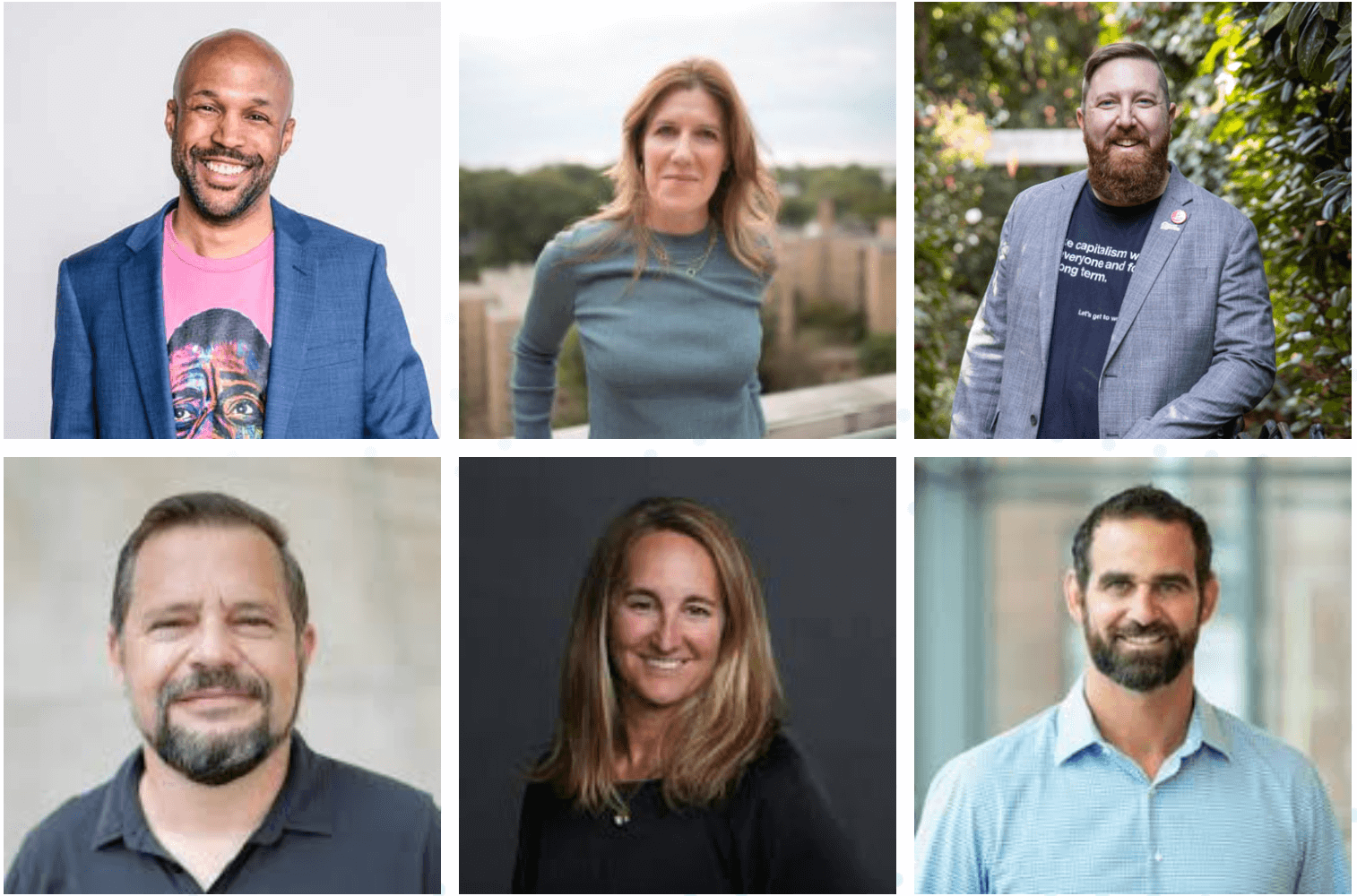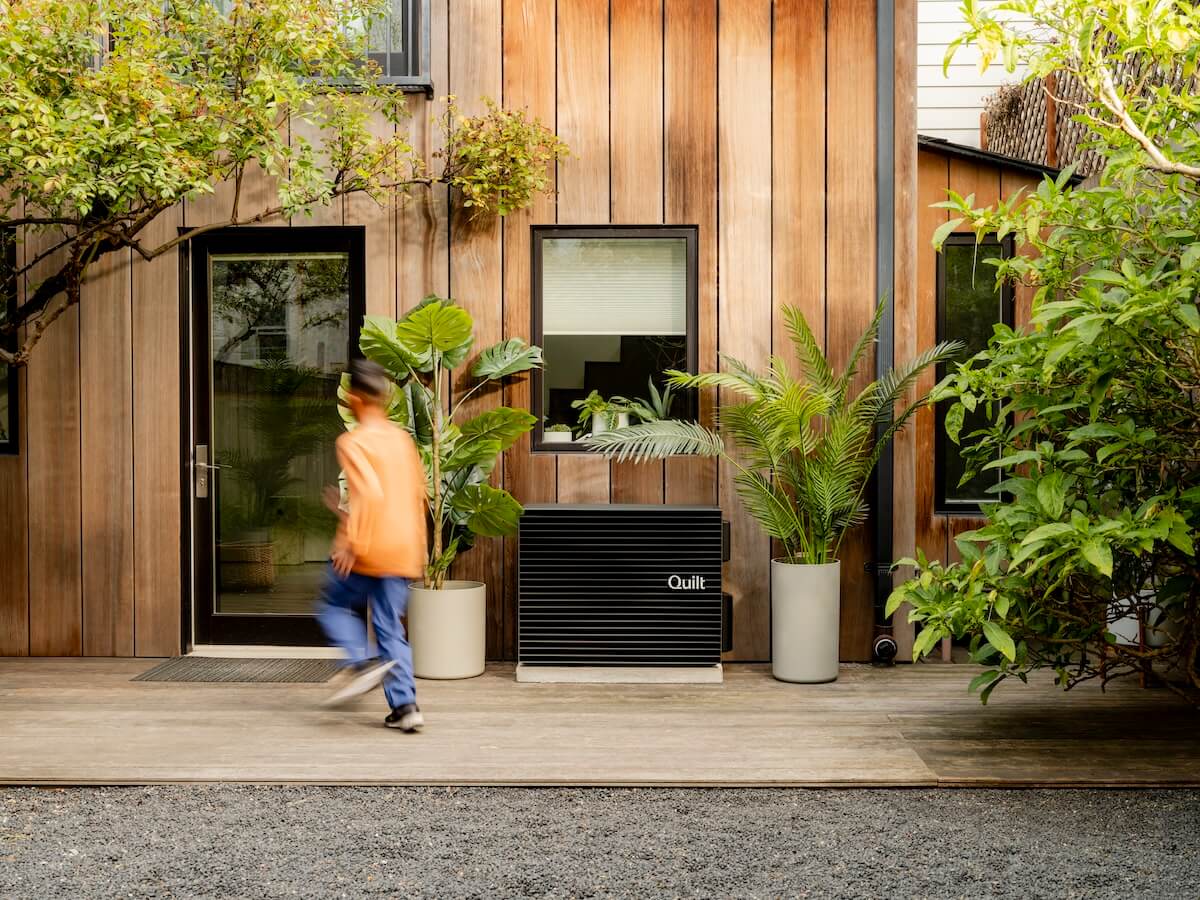Greetings, Agents of Impact!
Amsterdam happy hour. ImpactAlpha is heading to the GIIN Investor Forum in Amsterdam next week and we’re eager to meet up. Agents of Impact in town for the forum, as well as locals, are invited to gather at 5&33, a club and art space at Martelaarsgracht 5, on Tuesday, Oct. 1 from 7pm to 9pm. We’ll buy a few rounds…for ImpactAlpha subscribers. RSVP today.
Featured: ImpactAlpha Original
Overheard at the Bloomberg Global Business Forum. “Not enough capital is flowing” toward the low-carbon transition, Michael Bloomberg declared at last year’s Bloomberg Global Business Forum. The unavoidable takeaway from yesterday’s forum: Still not enough capital is flowing. “We have to move entirely off fossil fuels to an economy based 100% on clean energy,” Bloomberg told a packed ballroom at New York’s Plaza Hotel. Left unspoken was the lack of concrete capital commitments toward the $2 trillion per year in low-carbon investments needed to head off worst-case climate scenarios (annual investment levels have stalled at about $350 billion). “It’s not moving fast enough,” former President Bill Clinton confided to ImpactAlpha. Echoed Hiro Mizuno, chief investment officer of Japan’s $1.7 trillion Government Pension Investment Fund, “We need a quicker shift of the market.”
- Emerging market pipeline. Bloomberg’s Climate Finance Leadership Initiative identified a lack of investable projects, particularly in emerging markets. Of the $354 billion invested in renewable energy around the globe in 2018, just 13% is invested in emerging markets, noted Christine Lagarde, incoming president of the European Central Bank. A partnership between CLFI and the Association of European Development Finance Institutions aims to unlock opportunities in emerging markets. The payoff: Investing $1.8 trillion globally in five areas over a decade could generate $7.1 trillion in net benefits (see, “Challenges for climate action – and how to overcome them”).
- Green bonds. The consensus: we need more of them. Approximately $250 billion of the bonds were issued last year, but are not growing fast enough. One promising development: cheaper capital if renewable targets are met. Italy’s Enel SpA this month launched a $1.5 billion “SDG bond” to increase its share of renewable generating capacity to 55% by 2022. Enel’s interest payments will go up if it fails to meet that goal (see, “Retooling finance to accelerate the low-carbon transition”).
- Mixed Modi. India Prime Minister Narendra Modi struck a discordant tone with a pitch for investment based on India’s $5 trillion growth aspirations. Only when pressed by Bloomberg did he remember the environment. It’s not that there was nothing to say: Modi has banned single-use plastic, created a water-focused ministry, and upped the country’s renewable targets from 175 gigawatts to 450 gigawatts by 2030. With the third-largest coal reserves in the world, however, India won’t “deny” such assets, Modi said.
- Trade incentives. Another carrot: trade. Henry Paulson shared that, as U.S. treasury secretary, he tried to eliminate tariffs from eco-friendly goods and services. New Zealand Prime Minister Jacinda Ardern got it done. At the forum, she pointed to her recently launched Agreement on Climate Change, Trade and Sustainability with Norway, Iceland, Costa Rica and Fiji. The agreement eliminates tariffs on solar panels and wind turbines and includes commitments to ditch fossil fuels. “We’re creating a device that we’re seeking other countries to sign onto,” she said.
Keep reading, “Overheard at the Bloomberg Global Business Forum,” by Amy Cortese on ImpactAlpha.
- ICYMI: Catch the latest Returns on Investment podcast, “Mispriced climate risks signal investment shocks – and opportunities for action.”
Dealflow: Follow the Money
Fidelity adopts Ethic to boost financial advisors’ sustainable investing options. Investors with Fidelity accounts have access to a small number of sustainable investing products, mostly index funds constructed around women’s leadership, clean energy and other themes. But the $7.4 trillion asset manager doesn’t have ways to customize values-based options for “mid-size” investors, like foundations or family offices. Fidelity is tapping Ethic, which handles $180 million in assets, to help its advisors build such products and more proactively offer sustainable options for their clients, Ethic’s Alex Laipple told ImpactAlpha. “Investors go to their advisors for guidance, so this is more about educating advisors about solutions that can be built for their clients,” rather than offering everyone the same mutual funds, indexes or exchange traded funds, he said. Fidelity was an investor in Ethic’s $13 million equity round in July. Read on.
Aavishkaar scores $37 million for expansion in Asia and Africa. The India-based impact investing firm has more than $1 billion in assets under management and three open funds in India, Southeast Asia and Africa, on its way, it says, to $7 billion global portfolio by about 2026. To fuel Aavishkaar’s growth, Dutch development bank FMO stepped in as an equity investor, taking a 10% stake in the company. “We are in the third phase of our consolidation, where we have invited FMOto join as a shareholder in the group,” Aavishkaar’s Vineet Rai told the Economic Times. Last year, the firm sold a 25% stake to TIAA’s asset management firm Nuveen. Aavishkaar is actively fundraising for a $300 million Asia fund, a $150 million Africa fund, and its $200 million Bharat India fund, which makes growth stage investments. Check it out.
Allianz launches €300 million impact fund for European investors. Allianz Impact Investment Fund, which has not yet raised capital, will invest in private equity and debt, targeting €10 million to €40 million ($11 to $44 million) opportunities in energy efficiency, sustainable land use, agriculture, and other sectors, a spokeswoman told ImpactAlpha. It will be managed by Allianz Global Investors and add to the investment management group’s €6 billion impact portfolio. More.
Arabella launches initiative to boost deal pipeline for food startups. Good Food Ventures III is a “club” that vets and offers impact investing opportunities in the food value chain. Its goal is to drive more capital to solutions tackling environmental issues in agriculture, food waste and access to healthy foods. More.
Signals: Ahead of the Curve
To unlock entrepreneurship for development, ANDE turns to women, jobs and the environment. For its 10th anniversary, the Aspen Network for Development Entrepreneurs gathered some of its 300 members to look ahead. The takeaway: ANDE is aligning its work around the U.N. Sustainable Development Goals, and in particular, environmental action (SDG Nos. 6, 7 and 13), gender equality (No. 5) and jobs and economic growth (No. 8). “We believe that small and growing businesses are relevant to every single Sustainable Development Goal,” ANDE’s Randall Kempner told ImpactAlpha.
Among the concrete steps: ANDE will distribute more than $1 million from a new Advancing Women’s Empowerment Fund to organizations working to close the financing gap for women-led businesses as part of a partnership with the U.S. Agency for International Development and the Visa Foundation. To support businesses “to not just create jobs but create good jobs,” ANDE launched the Small and Growing Business Evidence Fund with the International Growth Centre. The environment and climate have not been a primary focus of emerging-market entrepreneurship, or of ANDE, Kempner says, but “we have taken the decision to change that.”
- Development entrepreneurship. ANDE over the past decade has made the case that with access to markets, capital, talent and an enabling environment, small and growing businesses can build even more viable businesses, create good jobs, contribute to resilient local economies and deliver other social and environmental outcomes.
- Access to capital. More than 450 investment vehicles with $11 billion in committed capital have launched to invest in emerging market small and growing businesses, ANDE recounts in its 10-year “impact and influence” report. Still, says Kempner, there are few local investment vehicles for small and growing businesses. In part through ANDE’s efforts, donor agencies have boosted the flow of funds to support entrepreneurship.
- Stocking the pipeline. Capital is just one challenge, says Kempner. “You still need to think about how you’re going to create a pipeline of investable companies.” Attracting and retaining talent and building effective business accelerators, he says “are directly relevant to the businesses themselves and how they can become businesses that will merit finance.”
- Share this post.
Agents of Impact: Follow the Talent
Today: Transform Finance takes stock of recent developments in impact investing with ImpactAlpha’s David Bank, Imogen Rose-Smith and Dennis Price. Join the webinar at 10 AM PT / 1 PM ET… Louis Hobson, ex- of National Flood Services, joins Chubb as senior vice president of flood insurance for North America… Global Reporting Initiative appoints Verna Lin to head its Greater China regional hub, which is relocating from Beijing to Hong Kong… NextSeed, which enables everyday investors to invest directly in local businesses merges with impact and ESG advisor Collaboration Capital… Chan Zuckerberg Initiative is looking for a ventures principal in Redwood City… The ImPact is hiring an associate in New York.
Thank you for reading.
– Sept. 26, 2019











